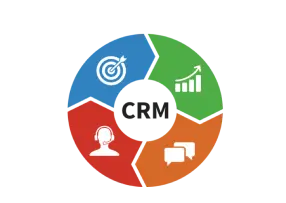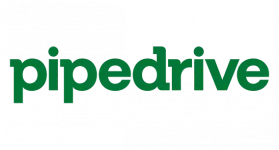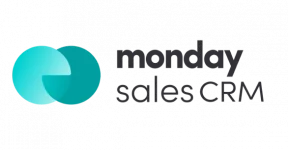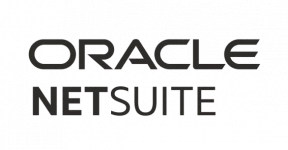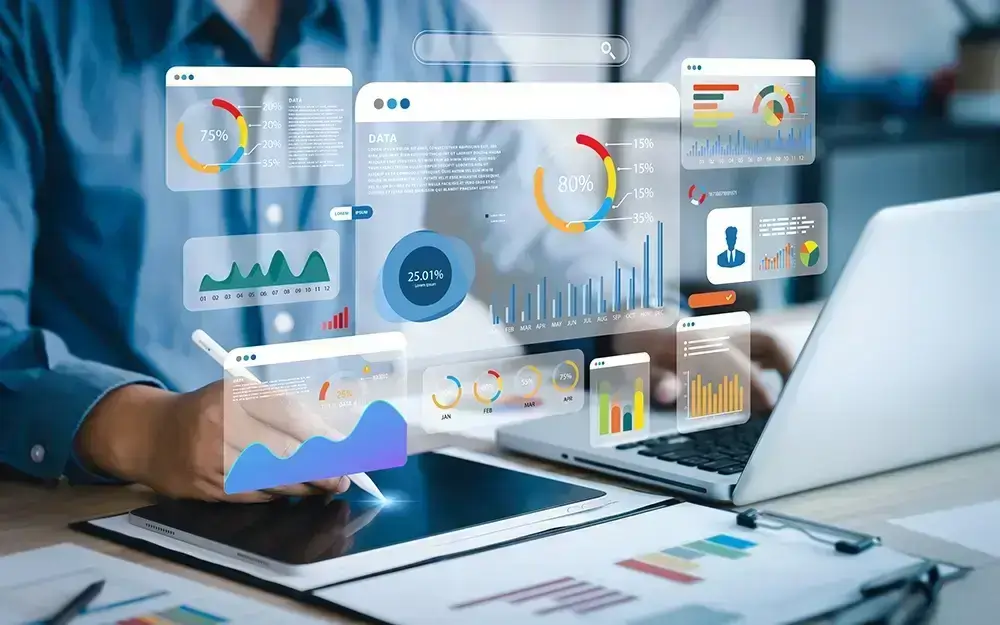-
Users close 28% more deals on average
-
Adaptable automations with strong performance
-
Lead gen and email marketing add-ons
-
Open API integration
-
Full access, no credit card required
 See extra details & advantages
See extra details & advantages
Over 350+ Integrations
Lead Tracking
Various Customization Options
Pros & Cons

Pros & Cons
-
Dashboard gives clear information of your sales pipeline
-
Intuitive interface
-
Sales focused workflow
-
Integrates with Google Maps
-
Limited functionality
-
Not able to duplicate pipelines
Why We Picked It:

Why We Picked It:
-
100% Free, and always will be
-
Quick setup and time-saving CRM
-
Automatically track customer interaction
-
Visualize & customize your sales funnel
-
Unlimited users and up to 1,000,000 contacts
 See extra details & advantages
See extra details & advantages
Wide Range Of Add-ons
Video Tutorials
Manage Pipeline
Pros & Cons

Pros & Cons
-
Easy to use
-
Free version is a complete CRM
-
Pipeline management
-
Track and analyze sales activity in real-time
-
Customer support only available on paid plans
-
Complicated pricing tiers
Why We Picked It:

Why We Picked It:
-
#1 CRM for Outlook
-
Efficient task and project management features
-
Mobile for IOS and Android
-
Free upgrades for life
-
Easy to use interface
 See extra details & advantages
See extra details & advantages
Perfect For Small / Startup Comp
#1 CRM For Outlook
Mobile for IOS & Android
Pros & Cons

Pros & Cons
-
Calendar and task management
-
Email Marketing and management
-
Internal chat integration
-
QuickBooks integration
-
Learning curve
-
Training isn’t free
Why We Picked It:

Why We Picked It:
-
The ability to scale indefinitely
-
Customizable to fit any business need
-
Focus on the data that matters to you
-
Seamlessly integrate all your favorite tools (Gmail/Outlook/HubSpot, etc.)
-
A user-friendly design and code-free customization
 See extra details & advantages
See extra details & advantages
Extremely Easy To Use
Manage The Entire Sales Cycle
24/7 Customer Support
Pros & Cons

Pros & Cons
-
Easy to learn
-
Open source platform
-
Customizable templates
-
Team collaboration
-
Does not support Sales Force automation
-
Confusing pricing tiers
Why We Picked It:

Why We Picked It:
-
Customer visibility across all channels
-
Improves sales process efficiency with an integrated quote-to-order, cash flow, and fulfillment solution
-
With Sales Forecast tool, you can forecast more accurately based on probability
-
Support teams can access customer information anytime, anywhere
-
Multichannel marketing automation automates emails, social media, and websites
 See extra details & advantages
See extra details & advantages
24/7 Customer Professional Support
Marketing Automation
Sales Forecast Tools
Pros & Cons

Pros & Cons
-
Cloud-Based
-
Marketing automation
-
Help desk ticketing
-
Achieved vs quota goals
-
Annual licensing fee
-
Pricey (but worth it)
Why We Picked It:

Why We Picked It:
-
30-Day money-back guarantee
-
Supports teams of any size
-
Android and ISO mobile apps
-
Importing data from previous CRM is easy
-
Offers Kanban-style and Gantt project data
 See extra details & advantages
See extra details & advantages
24/7 Support
Mobile App
30-Day Satisfaction Guarantee
Pros & Cons

Pros & Cons
-
Scalable
-
Affordable
-
Customizable
-
All-in-one cloud-based platform
-
Takes time to learn
-
Lags when switching between projects and tasks
Why We Picked It:

Why We Picked It:
Our Best Overall Provider
-
Users close 28% more deals on average
-
Adaptable automations with strong performance
-
Lead gen and email marketing add-ons
-
Open API integration
-
Full access, no credit card required
 See extra details & advantages
See extra details & advantages
Over 350+ Integrations
Lead Tracking
Various Customization Options
Pros & Cons

Pros & Cons
-
Dashboard gives clear information of your sales pipeline
-
Intuitive interface
-
Sales focused workflow
-
Integrates with Google Maps
-
Limited functionality
-
Not able to duplicate pipelines
Why We Picked It:

Why We Picked It:
Our Top Picks for
What Is a CRM?
CRM is short for Customer Relationship Management. CRMs are software designed to track all communications and nurture relationships with a company's leads and clients.
Imagine having all the applications that most companies patch together to understand their customers' journey all in one place and everything communicating and reporting smoothly and accurately.
A good all-in-one CRM will collect leads from all sources:
- calls
- emails
- texts
- online forms
- meetings
- documents
- quotes
- purchases
- landing pages
- invoices
Your CRM will automatically update the contact when any actions are taken. It can implement sales and marketing automations freeing time to concentrate on customer needs.
This allows the company to get granular information to automate many tasks like segregating email lists so customers get the right emails for their needs at the right time to trigger sales.
Everyone in the company, from managers to sales teams, can be allowed access to all or some of the information. The end result is better time management, increased organization, and far greater efficiency than with manual spreadsheets.
Our Top 3 CUSTOMER RELATIONSHIP MANAGEMENT (CRM)
-
Dashboard gives clear information of your sales pipeline
-
Intuitive interface
-
Sales focused workflow
-
Integrates with Google Maps
-
Limited functionality
-
Not able to duplicate pipelines
Pipedrive is a great CRM for teams that wish to have an easy-to-use system to keep in touch with leads and contacts. It also has a marketplace, which allows its users to greatly extend the basic functionality of the CRM. Among the major CRMs, Pipedrive is one of the easiest to use and install.
-
Easy to use
-
Free version is a complete CRM
-
Pipeline management
-
Track and analyze sales activity in real-time
-
Customer support only available on paid plans
-
Complicated pricing tiers
One of the Best CRM Software for Your Whole Business.
-
Calendar and task management
-
Email Marketing and management
-
Internal chat integration
-
QuickBooks integration
-
Learning curve
-
Training isn’t free
Their goal is to continue building powerful, intuitive and affordable solutions.
Kelly Weissman
Kelly Weissman is an expert analyst and reviewer who has a wealth of experience.
She is highly respected for her opinions and insights, and her reviews are sought after by both consumers and businesses alike. Kelly is a trusted source of information and her reviews are always fair and objective.
What Is a CRM?
CRM is short for Customer Relationship Management. CRMs are software designed to track all communications and nurture relationships with a company's leads and clients.
Imagine having all the applications that most companies patch together to understand their customers' journey all in one place and everything communicating and reporting smoothly and accurately.
A good all-in-one CRM will collect leads from all sources:
- calls
- emails
- texts
- online forms
- meetings
- documents
- quotes
- purchases
- landing pages
- invoices
Your CRM will automatically update the contact when any actions are taken. It can implement sales and marketing automations freeing time to concentrate on customer needs.
This allows the company to get granular information to automate many tasks like segregating email lists so customers get the right emails for their needs at the right time to trigger sales.
Everyone in the company, from managers to sales teams, can be allowed access to all or some of the information. The end result is better time management, increased organization, and far greater efficiency than with manual spreadsheets.
FAQ
What valuable features does CRM bring to the business?


CRM is an abbreviation for Customer Relations Management. CRM is a software management tool used to build and manage relationships with customers who have bought your service or product. CRM software helps businesses streamline their workflow to see all parts of their activity on the same page.
The platform allows you to track your customers’ movements and record their preferences. Helping companies manage all their interactions with both customers and potential consumers. Consistently ensuring they have a personalized experience, no matter which employee they speak to. The CRM system will record essential details of each conversation.
Overall, a CRM advances the collaboration and productivity between sales and marketing teams. It allows other managers to continue the conversation with any customer because they know the context of their previous discussion. Consequently, your CRM can help execute a more engaging customer experience, increase customer loyalty & retention, drive business growth & profitability, etc.
How does the CRM system work?


CRM systems collect customer data through various channels or points of contact between the company and the customer. Examples of these contact points could be an online chatbox, company website, direct mail, call center, marketing materials, social networks, etc. They make all contact details such as a client’s preference, service requests, and questions instantly available. Thus, any interaction with your clients can always be personalized and up to date, no matter which employee is taking over the conversation.
A business can use its CRM systems to plan follow-ups, organize future approaches, and add notes. In addition, a CRM can also assist you with keeping track of emails, phone calls, and meetings that were held—ensuring that opportunities to close deals and increase customer growth were not missed.
How Can I Choose the Right CRM System to Improve My Business?


Choosing the right CRM for your company depends on the enterprise’s size, structure, and business model. Customer Relationship Management System provides many options, but only specific brands software will suit your business the best.
For example, a CRM can streamline the reporting process and make it easier to find customer data. Ultimately, creating the following solutions:
- The customer service will be improved.
- The work schedule of the employees will be available at all times.
- The workflow of managing leads will be simplified.
In addition, a CRM will help you increase customer loyalty and better manage long-term relationships with valuable customers. All this will significantly improve your growth potential.
What are the benefits of using CRM against other business utilities?


There are many benefits of using a CRM. For example, having all the information about your customer’s previous purchases and historical records of interactions can quickly improve your staff’s customer service. Additionally, a CRM can be a storage source for all your company’s data.
You will have access to sales history, invoicing, serial numbers of your product, history of multi-ship to addresses, and more analytics. You can organize all the above features to provide an accurate and complete view of your data. Other essential options of a CRM system could also be collaborative, operational, or analytical features.
Analytical CRMs primarily help you analyze your customers’ data to make crucial insights easily accessible. It makes it easier to collect and utilize large amounts of data. Operational CRM helps optimize company processes for customer relationships. You are providing tools to visualize and manage the entire customer journey, even if it includes many points of contact.
The main goal of a collaborative CRM system is to eliminate the silos of business software. Customer service agents, sales representatives, and the marketing team often need to collaborate efficiently in separate departments. And for larger organizations, each of these departments is further divided along geographic communication lines, making them feel even more disconnected.
A collaborative CRM will help your departments communicate with ease among one another even when they are physically distant, making each department feel more connected with other departments.
Does my company need a CRM?


If your company needs to keep track of multiple contact points with customers and potential clients, it must invest in this software. So, you’ll probably need a CRM if you provide services, sell products, or interact with purchasers or potential customers in any way. Do that, especially if you want your business to grow; CRM tools allow you to identify sales opportunities, store customer data, manage marketing campaigns, and log service issues, keeping all this information in one central location.
How does a CRM facilitate retaining customer loyalty?


Using a CRM will improve your customers’ loyalty and experience. A CRM offers information gathering and interaction tools that will enable you to learn more about your business. The more you know about your customers’ behaviors, the more tools your staff has to meet their customers’ needs, enabling a better customer experience.
Does a CRM have a bookkeeping option?


There is a unique subtype of CRM systems, which significantly facilitates the work of financial reporting—known as an Accounting Customer Relationship Management Platform. It is software that helps accountants, tax professionals, and bookkeepers manage client data. You can also use this software to customize communications for each client.
Important to know about CRM Systems SERVICES

A CRM system is a crucial tool for any business looking to develop their practice and grow their client...
See Reviews
Every entrepreneurship and sole business person can significantly grow their business and increase...
See Reviews
Technological advancement is a significant contributor to modern-day business growth. Before the...
See ReviewsKelly Weissman
Creative writer and editorKelly Weissman is an expert analyst and reviewer who has a wealth of experience.
She is highly respected for her opinions and insights, and her reviews are sought after by both consumers and businesses alike. Kelly is a trusted source of information and her reviews are always fair and objective.



